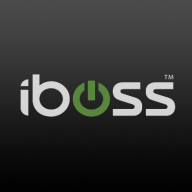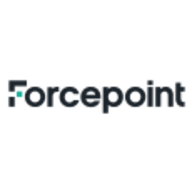


Check Point Harmony SASE and Forcepoint ONE compete in the SASE market. Check Point Harmony SASE appears to have the edge with its cost-effectiveness and comprehensive support, while Forcepoint ONE's strengths lie in its extensive feature set and high perceived value.
Features: Check Point Harmony SASE offers robust security features, ease of use, and a simple, intuitive interface. Forcepoint ONE delivers advanced customization, granular policy controls, and extensive configurability, allowing flexibility for users.
Room for Improvement: Check Point Harmony SASE could improve its reporting capabilities, enhance third-party app integration, and expand upon existing features. Forcepoint ONE needs to address integration challenges, improve the speed of policy updates, and streamline operational procedures for better user satisfaction.
Ease of Deployment and Customer Service: Check Point Harmony SASE is known for its easy deployment process and reliable customer support. In contrast, Forcepoint ONE requires careful deployment and might need additional training for complexity, although its customer service remains attentive.
Pricing and ROI: Check Point Harmony SASE is favored for its budget-friendly pricing and swift returns on investment. Forcepoint ONE comes with a higher initial cost, yet users recognize the value through its superior features and long-term benefits.
| Product | Market Share (%) |
|---|---|
| iboss | 2.4% |
| Check Point Harmony SASE (formerly Perimeter 81) | 3.7% |
| Forcepoint ONE | 1.6% |
| Other | 92.3% |

| Company Size | Count |
|---|---|
| Small Business | 6 |
| Midsize Enterprise | 6 |
| Large Enterprise | 5 |
| Company Size | Count |
|---|---|
| Small Business | 53 |
| Midsize Enterprise | 20 |
| Large Enterprise | 13 |
| Company Size | Count |
|---|---|
| Small Business | 10 |
| Midsize Enterprise | 3 |
| Large Enterprise | 12 |
Iboss offers a comprehensive cloud-based security platform valued for its scalability and autonomous features, ensuring robust security with easy deployment and management capabilities.
Renowned for its robust security architecture, Iboss integrates seamlessly within diverse networks, delivering efficient granular filtering and advanced content categorization. Its single pane of glass console provides ease of management, allowing rapid scalability suitable for rapidly deploying environments. Operates in BYOD setups due to inline filtering without device installation. Integration with cloud-based applications enhances user control, and features like SASE, SSL inspection, and ChatGPT risk protection stand as highlights. Despite its strengths, users have pointed out areas for enhancement like direct navigation in reports, SSL decryption, and better cloud integration while having room to improve data loss prevention.
What are the most important features of Iboss?The usage of Iboss spans educational institutions, specifically K-12, to enforce internet policies, protect data, and support remote work environments. It provides web filtering and security frameworks to ensure safe browsing. Its platform-as-a-service model offers flexibility for both cloud-based and on-premises requirements, integrating seamlessly to deliver enhanced security features suitable for various deployment needs including zero trust, CASB, and network security for work-from-home setups.
Check Point Harmony SASE, formerly Perimeter 81, offers robust security features like split tunneling, MFA, and Zero Trust Network Access focused on secure remote access and optimized connectivity for remote teams.
Check Point Harmony SASE delivers advanced security through a user-friendly interface, efficient VPN connections, and a centralized management console. It enhances security with real-time threat intelligence from ThreatCloud and traffic management via built-in optimization. Firewall as a Service and Secure Web Gateway safeguard against unauthorized access and phishing. While users seek enhanced networking customizations and better integration with identity providers, there's an emphasis on improving reporting, real-time analytics, and policy management. Requests also include a Chrome extension, traffic balancing, and simplified configuration to address some resource-intensive aspects.
What are the key features of Check Point Harmony SASE?
How can organizations benefit from using Check Point Harmony SASE?
Check Point Harmony SASE is used across industries for secure remote access and connectivity, protecting sensitive data, and managing access to corporate resources. It is ideal for those with hybrid cloud models and requires comprehensive security measures combined with existing IT infrastructures to meet specific industry demands.
Forcepoint ONE is a comprehensive cybersecurity platform that provides organizations with a unified approach to protecting their critical data and assets. It offers a range of solutions that cover everything from network security and cloud security to data protection and insider threat prevention.
With Forcepoint ONE, organizations can gain complete visibility into their security posture, identify potential threats, and take proactive measures to mitigate risks.
One of the key features of Forcepoint ONE is its ability to provide real-time visibility into user behavior across all endpoints, networks, and cloud environments. This allows organizations to quickly identify and respond to potential threats, such as insider threats or malicious activity from external actors. Additionally, Forcepoint ONE offers advanced threat intelligence capabilities that leverage machine learning and AI to detect and respond to emerging threats. Another important aspect of Forcepoint ONE is its data protection capabilities.
The platform offers a range of solutions for protecting sensitive data, including data loss prevention (DLP), encryption, and secure web gateways. These solutions help organizations ensure that their critical data is protected both at rest and in transit, regardless of where it is stored or accessed.
Forcepoint ONE is a powerful cybersecurity platform that offers a comprehensive set of solutions for protecting organizations against a wide range of threats. With its advanced threat intelligence capabilities, real-time visibility into user behavior, and robust data protection features, Forcepoint ONE is an ideal choice for organizations looking to take a proactive approach to cybersecurity.
We monitor all Secure Web Gateways (SWG) reviews to prevent fraudulent reviews and keep review quality high. We do not post reviews by company employees or direct competitors. We validate each review for authenticity via cross-reference with LinkedIn, and personal follow-up with the reviewer when necessary.